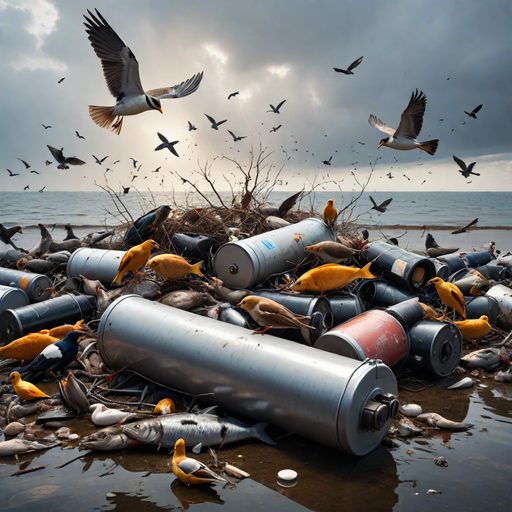
Electric Batteries: Source of Forever Chemicals?
Recommended for Middle Grades
Dear Readers, Curious Times has always been a fan of the little guy, the underdog, the hidden stories behind the glossy facades. Electric cars, hailed as the saviors of our planet, might be hiding a dirty little secret under the hood: a new source of those nasty “forever chemicals in its electric batteries”
Yeah, you heard that right, forever chemicals – the kind that linger in our bodies and the environment like an unwelcome houseguest.
So, PFAS… they’re basically man-made chemicals. They’re in everything from your non-stick pan to your waterproof boots, and they don’t break down, hence the nickname “forever chemicals.” Not exactly what you want hanging around in your body or the environment. What is PFAS (Perfluoroalkyl and Polyfluoroalkyl Substances)?
Lithium-ion batteries, they’re rechargeable powerhouses, using lithium ions to shuttle energy back and forth. You’ll find them in everything from your phones to electric cars. What are lithium-ion batteries?
Bis-FASIs, also known as PFAS, are basically man-made chemicals, the Teflon in your non-stick pan. But here’s the kicker, they’re forever chemicals, meaning they don’t break down easily and can hang around in the environment and our bodies. What is Bis-perfluoroalkyl sulfonimides (bis-FASIs)?
Why should you care about this? Well, if you’re one of those folks who thought going electric was a one-way ticket to a clean conscience, this might give you pause. Or maybe you’re just a curious soul who likes to know what’s really going on beneath the surface. Either way, this story is for you.
And who’s this story for? It’s for everyone who plugs in their phone, drives an electric car, or simply gives a damn about the planet we’re leaving for the next generation. It’s for the environmentalists, the policymakers, the scientists scratching their heads, and the everyday folks who just want to know the truth.
Key Facts:
- Scientists have found that lithium-ion batteries, the powerhouses of our electric vehicles and countless gadgets, are leaking a class of PFAS known as bis-perfluoroalkyl sulfonimides (bis-FASIs).
- These little buggers are designed to make batteries safer and more efficient, but they’ve got a nasty habit of sticking around. We’re talking thousands of years of lurking in our soil, water, and even our bodies.
- Now, before you start panicking, let’s dig a little deeper. We know these bis-FASIs have been found near battery manufacturing plants, and they’re showing up in waterways around the world.
- But here’s the twist: we don’t know exactly how much is leaking from each battery, or what the long-term effects on human health are. We’re in the early stages of unraveling this mess.
- But here’s what we do know: PFAS in general have been linked to a whole host of health problems, from liver damage to low birth weights. And these bis-FASIs, even at low concentrations, are messing with the behavior of aquatic critters. Not cool, man.
- This ain’t just a local problem, either. Lithium-ion batteries are everywhere, from the Tesla in your driveway to the smartphone in your pocket. And most of them end up in landfills, where these forever chemicals can leach into the environment and potentially contaminate our drinking water.
Conclusion
So, what’s the takeaway? Well, it’s not all doom and gloom. Scientists are calling for the development of cleaner battery technologies and better recycling solutions. We need to find ways to power our lives without poisoning our planet in the process.
This whole situation is a reminder that even the greenest of technologies can have hidden consequences. It’s a call to be vigilant, to question the status quo, and to demand better from the companies that profit from our desire for a cleaner future.
The road to sustainability is rarely a straight line. There are always bumps, detours, and unexpected twists and turns.
But as long as we’re willing to face the hard truths, ask the tough questions, and keep pushing for progress, we can create a world where both technology and nature thrive.
So, the next time you hop into your electric bike or reach for your smartphone, take a moment to consider the hidden costs of convenience. And then ask yourself: what can we do to make a difference?
Watch a video
PFAS: The Toxic Forever Chemicals Crisis by NRDC (4 minutes, 15 seconds)
Curious Times is a leading newspaper and website for kids. We publish daily global news aligned to your learning levels (also as per NEP 2020): Foundational, Preparatory (Primary), Middle and Senior. So, check out the News tab for this. We bring kids’ favourite Curious Times Weekly newspaper every weekend with top news, feature stories and kids’ contributions. Also, check out daily JokesPoke, Tongue Twisters, Word of the Day and Quote of the Day, kids need it all the time.
Curious Times News Program for Schools for FREE. Over 5,000 schools and teachers from all over the world have joined our programme so that students and teachers can get FREE Educative Newspaper. Here, kids can take part in world events and win prizes and certificates for free through their schools.
Moreover, schools are sharing important School News, like interviews with the principal, notices about new students, contests, and results, not just on social media but also on a news website for kids and other schools.
Thus, do not wait any further, sign-up for your school for FREE.
The following social media platforms allow you to communicate with us: WhatsApp, Instagram, Facebook, Youtube, Twitter, and LinkedIn.
0 (Please login to give a Curious Clap to your friend.)
